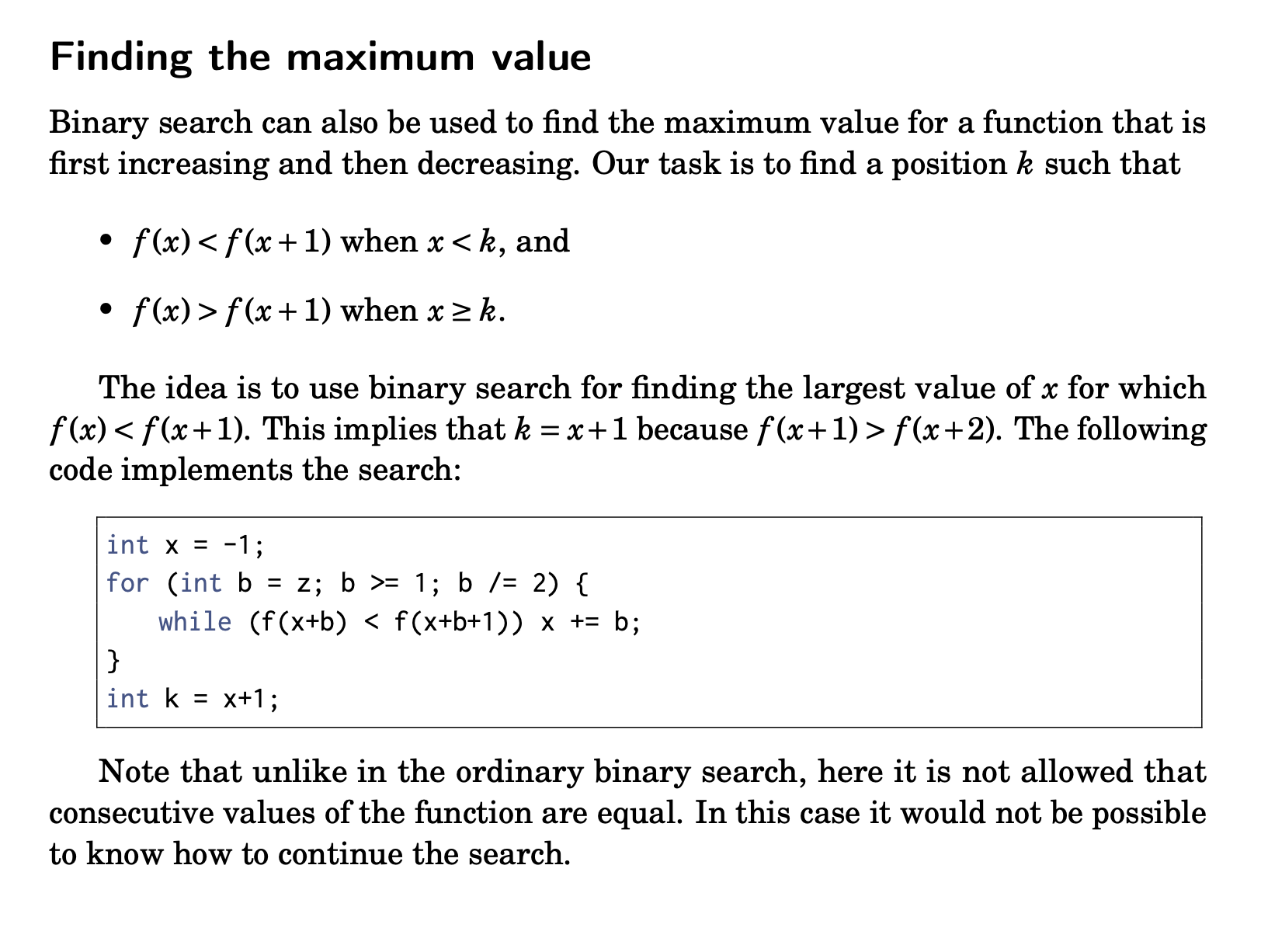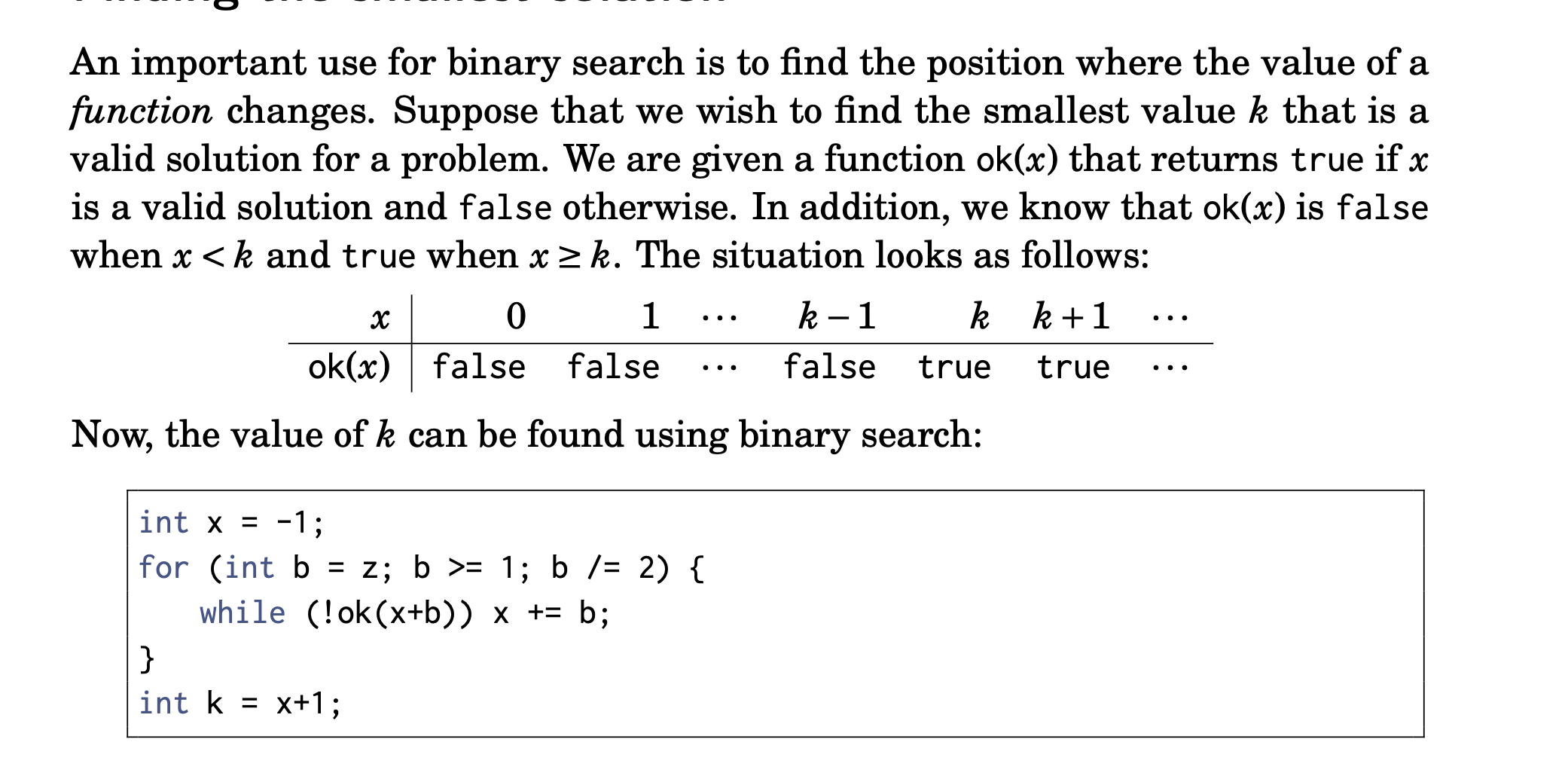Binary Search
I always get confused with the bounds.
Resources
- Binary Search tutorial (C++ and Python)
- Biggest learning here is that binary search also works on an array that looks like
[true, true, true, false, false, false]!
- Biggest learning here is that binary search also works on an array that looks like
- Competitive Programmer’s Handbook
Code that I use for Competitive Programming:
int l = 0;
int r = arr.size() - 1;
while (l <= r) {
int mid = (l+r)/2;
if (arr[mid] == val) {
return mid;
} else if (arr[mid] < val) {
l = mid + 1;
} else {
r = mid-1;
}
}Does binary search work if there are duplicate values??
Yes, as long as the function you’re searching over is Monotonic Function. (ACTUALLY, it depends on the problem). Look at the example application below, we can’t have duplicate values.
You can also use the built in library in C++, since it is faster. But I also encourage you when needed to write it yourself.
/*PAY ATTENTION HERE:
- For lower bound, If it finds the first element equal to "val". If not found, it points to the first element greater than "val".
- However, for upper bound, it finds the first value greater than "val"
In general, always use lower_bound()
*/
auto lower = std::lower_bound(a.begin(), a.end(), val)- https://cplusplus.com/reference/algorithm/lower_bound/ Returns an iterator pointing to the first element in the range
[first,last)which does not compare less than val. - https://cplusplus.com/reference/algorithm/upper_bound/ returns an iterator pointing to the first element in the range
[first,last)which compares greater than val.
Finding first number smaller than “val”?
set<int> a;
set<int>::iterator it = a.lower_bound(5);
if (it != a.begin()) {
it--;
cout << *it << endl;
} else {
cout << "No smaller element found!" << endl;
}For a decreasing array, you can feed in a custom operator:
auto itr3 = lower_bound(vec.begin(),vec.end(),40,std::greater<int>());Applications
You can boil down a lot of search problems that don’t seem like search problems at first, but they are.
Ex: Finding the smallest solution


Related Applications
Actually, the idea of splitting the problem in half really comes more more often than I thought. It allows us to go from to for lots of problems. These are some of the ideas:
- Lowest Common Ancestor (Binary Lifting)
- Successor Graph → computing
- Tree Query → finding the ancestor
- Fenwick Tree and
- Segment Tree
- Binary Exponentiation
More Advanced Binary Search
Consider something like this codeforces problem 1941F.
You’re actually given 3 arrays, and need to do some sort of binary search to find a value that minimizes the sum.
- You just need to use
lower_bound, and consider also the value immediately smaller (so look at 2 values). The optimal value is always the one between the two values.